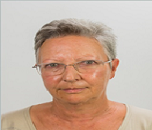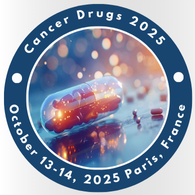Sessions and Tracks
Track 1: Cancer and Its Relevance to Other Diseases
A significantly increased risk of developing cancer has been observed in association with several individual diseases and biological markers, with the exception of blood pressure and pulmonary disease. All eight conditions and markers examined showed a strong statistical correlation with cancer-related mortality. Diabetes, in particular, has consistently been linked to a moderately elevated risk of cancer. Growing evidence also suggests associations between cancer risk and various cardiovascular disease markers, including total cholesterol levels, heart rate, blood pressure, chronic kidney disease, and elevated uric acid levels, indicative of gouty arthritis. Additionally, while multiple studies have connected pulmonary disease to lung cancer, there is limited data regarding its role in cancers at other sites.
Track 2: Anti-Cancer Drug Discovery and Development
The development of drugs designed to selectively target and inhibit tumor growth has entered a promising new era, marked by a shift toward target-oriented approaches. In recent years, research has identified specific proteins involved in cancer cell proliferation, enabling the creation of drugs aimed precisely at these molecular targets. Despite these advances, the drug discovery process remains a combination of random screening and rational drug design. The relationship between academia and industry continues to evolve in response to both technical and financial challenges, with a shared focus on translating scientific breakthroughs into meaningful clinical applications.
Track 3: Advances in Cancer Research and Treatment
Cancer research aims to uncover the causes of the disease and develop effective strategies for its diagnosis, prevention, treatment, and ultimately, cure. This field encompasses a broad range of disciplines, from epidemiology and molecular biosciences to clinical trials that assess and compare various treatment approaches. Current cancer therapies include surgery, chemotherapy, immunotherapy, radiation therapy, hormone therapy, and combination modalities such as chemoradiotherapy. While any of these methods can serve as a primary treatment, surgery remains the most commonly used approach for many of the most prevalent cancer types.
Track 4: Radiology & Imaging Technologies
Radiology plays a central role in disease management, offering a wide range of tools for diagnosis, staging, and treatment planning. These technologies provide non-invasive ways to view internal structures, including modalities like mammography, X-ray, CT scans, MRI, ultrasound, fluoroscopy, nuclear medicine, PET scans, bone densitometry, and more. While clinical imaging focuses on diagnostic application, imaging technology pertains to the technical development and functionality of the equipment and systems used in radiology.
Track 5: Cancer Biomarkers & Bioinformatics
Cancer biomarkers have diverse clinical applications, including early detection, risk assessment, prognosis, treatment prediction, and disease monitoring. Due to their importance across all stages of cancer care, rigorous validation—encompassing analytical and clinical evaluation—is essential before clinical implementation. Bioinformatics supports this process by analyzing and interpreting complex biological data, playing a critical role in the advancement of precision medicine and modern oncology research.
Track 6: Managing Cancer Care & Patient Support
Patient-centered cancer care focuses on individual needs, values, and experiences, as reported by patients and their families. While cancer centers have long tracked patient satisfaction, fewer have assessed the broader spectrum of patient experience. Integrating IT solutions into care delivery enhances communication, coordination, and personalization, leading to more effective and compassionate cancer care.
Track 7: Cancer Causes & Risk Factors
Cancer arises from a variety of causes—some inherited, others acquired through environmental or lifestyle exposures. It includes a broad spectrum of diseases classified by the origin of affected cells. Aging is a significant risk factor, along with modifiable risks such as smoking, alcohol consumption, obesity, and UV exposure. Cancer begins when cells acquire the ability to grow uncontrollably and invade normal tissues.
Track 8: DNA Damage and Mutation
DNA damage, triggered by internal or external factors, can lead to mutations if not properly repaired. Inadequate DNA repair mechanisms contribute to carcinogenesis, with some mutations linked to “low-penetrance” genes that modestly increase cancer risk. Cancer genomes often contain diverse classes of mutations, many of which accumulate during early neoplastic development.
Track 9: Cancer Prevention Vaccines
Cancer prevention vaccines, especially those targeting oncoviruses like HPV and HBV, have shown success in clinical settings. These vaccines are most effective when administered before viral exposure. Approved by the CDC and FDA, preventive vaccines aim to stop infections that can lead to cancer, while therapeutic vaccines work by stimulating the immune system to attack existing cancer cells.
Track 10: Cancer Immunology & Immunotherapy
Cancer immunology explores the interactions between cancer cells and the immune system. Immunotherapy harnesses immune mechanisms to treat cancer, including monoclonal antibodies, immune checkpoint inhibitors, cancer vaccines, and T-cell-based therapies. This rapidly advancing field aims to develop targeted treatments with fewer side effects and improved outcomes.
Track 11: Clinical and Medical Case Reports
Case reports document unique or rare clinical observations, contributing valuable insights that may inspire new research or treatment strategies. Although they do not establish causality, case reports can reveal adverse drug reactions, novel diseases, or unusual presentations, laying the groundwork for future clinical studies.
Track 12: Cancer Pathology & Genetics
Cancer is defined by abnormal cell growth with potential to invade or metastasize. Not all tumors are malignant; benign tumors do not spread. Genetic mutations, particularly those affecting signaling pathways, are common across different tumor types. Advances in molecular diagnostics and sequencing technologies are uncovering somatic mutations driving cancer progression.
Track 13: Surgical & Clinical Oncology
Medical oncology addresses the diagnosis, treatment, and long-term care of cancer patients using systemic therapies like chemotherapy, targeted therapy, immunotherapy, and hormonal treatments. It often works in conjunction with surgical and radiation oncology to provide comprehensive cancer care. Clinical oncology encompasses both radiotherapy and systemic treatments to manage cancer effectively.
Track 14: Cancer Nanotechnology
Nanotechnology offers precise, sensitive tools for cancer detection, diagnosis, and treatment. Although not yet widespread in clinical oncology, nanoparticles are being used in various diagnostic assays and are under development for detecting circulating tumor DNA, exosomes, and other cancer-related biomarkers. Nanotechnology holds promise for targeted drug delivery and real-time imaging.
Track 15: Cancer Epidemiology
Cancer epidemiology studies the distribution, determinants, and frequency of cancer in populations. It identifies risk factors—such as genetics, immune status, environmental exposures, and infections—and informs screening programs and preventive strategies. Epidemiological research is crucial for guiding public health policies and evaluating intervention effectiveness.
Track 16: Cancer Pharmacology
Cancer pharmacology focuses on the mechanisms of anti-cancer agents, including pharmacokinetics, pharmacodynamics, drug resistance, and novel therapeutic strategies. This field explores how drugs interact with cancer cells, identifies new molecular targets, and enhances the effectiveness of chemotherapy, targeted therapy, and combination treatments through an understanding of cellular pathways and DNA repair systems.
Track 17: MicroRNA and Cancer
MicroRNAs (miRNAs) are short non-coding RNAs that regulate gene expression and are involved in critical pathways such as cell cycle control and DNA damage response. Their role in cancer has gained attention for their potential as diagnostic and prognostic biomarkers, as well as therapeutic targets. miRNAs are already being incorporated into clinical strategies for cancer stratification and treatment.
Track 18: Regenerative Medicine
Regenerative medicine combines biology and engineering to repair or replace damaged tissues and organs. It holds promise for treating diseases and injuries by restoring function through stem cells, engineered tissues, or bioactive materials. In oncology, regenerative techniques may aid recovery and improve quality of life after cancer treatments.
Track 19: Robotic Oncology
Robotic surgery has transformed surgical oncology by enhancing precision, stability, and visualization. Systems like the da Vinci robot provide surgeons with advanced tools for minimally invasive procedures. Originally developed for benign surgeries, robotics are now widely used in cancer care, offering advantages over traditional techniques, including faster recovery and reduced complications.
Track 20: Pediatric Oncology
Pediatric oncology focuses on the diagnosis and treatment of cancers in children. While the exact causes are often unknown, some pediatric cancers are linked to inherited genetic mutations. Unlike adult cancers, pediatric cancers typically result from developmental mutations rather than long-term environmental exposures. Supportive care remains a crucial aspect of pediatric cancer management, addressing both medical and emotional needs.
Market Analysis
The global cancer diagnostics and treatment market is segmented into key regions: North America, Europe, Asia-Pacific, Latin America, the Middle East, and Africa. According to market research, the price of cancer-related medicines was projected to nearly double to USD 623 million by 2021. Furthermore, the global cancer profiling market is anticipated to reach USD 13.9 billion by 2026, growing at a compound annual growth rate (CAGR) of 10.9% during the forecast period.
Leading players in this sector include QIAGEN N.V. (Germany), Illumina Inc. (US), NeoGenomics Laboratories (US), HTG Molecular Diagnostics Inc. (US), NanoString Technologies (US), Genomic Health Inc. (US), Caris Life Sciences (US), Helomics Inc. (US), Sysmex Corporation (Japan), and Roche Diagnostics (Switzerland).
In addition to industry advancements, academic and research institutions worldwide are playing a pivotal role in driving innovation through collaborative oncology research. The global oncology drug market is projected to grow at a rate of 7.5–10.5% annually, potentially reaching USD 150 billion by 2021, according to market intelligence reports.
Moreover, major pharmaceutical companies, including Pfizer and Eli Lilly, have launched patient assistance programs targeting uninsured individuals with chronic illnesses, including cancer. These initiatives enhance treatment accessibility and are expected to further stimulate market growth by enabling a broader patient base to undergo advanced cancer therapies.















